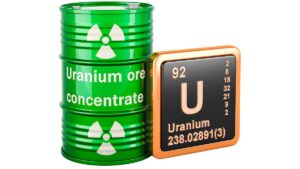China could be dialling back the bully act because it needs Aussie coal

Pic: Bloomberg Creative / Bloomberg Creative Photos via Getty Images
Argus believes China may be dampening its bluster against Canberra amid “increasingly acute” coal shortages, which could worsen in the first quarter of 2021.
The informal ban on Australian coal since April — which followed Canberra’s call for an investigation into the origins of the COVID-19 — has been a key factor behind China’s coal shortages.
They are also paying a lot more for overseas coal in futile efforts to replace the Australian stuff.
“Seaborne coal from non-Australian sources has not been enough to fulfil China’s appetite for higher-calorific value (CV) NAR 5,500 kcal/kg coal,” Argus says.
“Some Russian suppliers offered January-loading Capesize cargoes of NAR 5,500 kcal/kg coal at as much as $US80/t last week, while some Indonesian producers offered January-loading Supramax cargoes of GAR 5,800 kcal/kg (NAR 5,500 kcal/kg) at significantly higher levels.
“This is well above prices for January-loading Capesize cargoes of Australian NAR 5,500 kcal/kg coal, which were offered at up to $US60-63/t fob Newcastle at the end of last week.”
The domestic coal shortages have resulted in some Chinese provinces rationing electricity and contributed to a spike in China’s domestic spot prices.
And it could get worse. China could face a relatively drier climate from January-May 2021, according to the country’s meteorological administration.
“This could inhibit hydropower availability, pushing utilities to rely more on thermal coal power instead,” Argus says.
“Heavy snowfall can also be expected in north China during most of January, the administration said.
“This could result in snow-related mining disruptions in the part of China where much of its coal is produced.”
There are hints that the Chinese government may be toning down its rhetoric.
“China and Australia are part of the Asia-Pacific family and have benefited from mutual trade for a long time …. the current deadlock is not something we like to see,” China’s minister of foreign affairs Wang Yi said on 18 December, according to the ministry’s website.
“Australia needs to consider whether China is a threat or a partner. If they regard us as a partner, then there is the basis for dialogue. We really hope that relations between our countries can normalise.”
Related Topics
UNLOCK INSIGHTS
Discover the untold stories of emerging ASX stocks.
Daily news and expert analysis, it's free to subscribe.
By proceeding, you confirm you understand that we handle personal information in accordance with our Privacy Policy.








